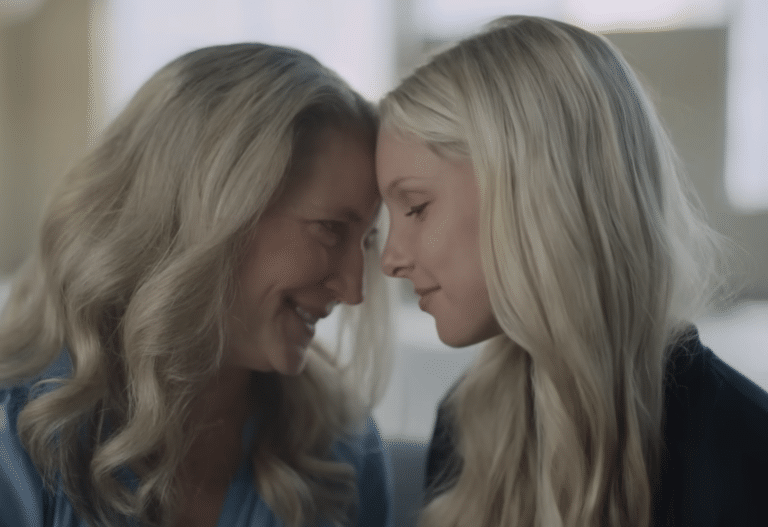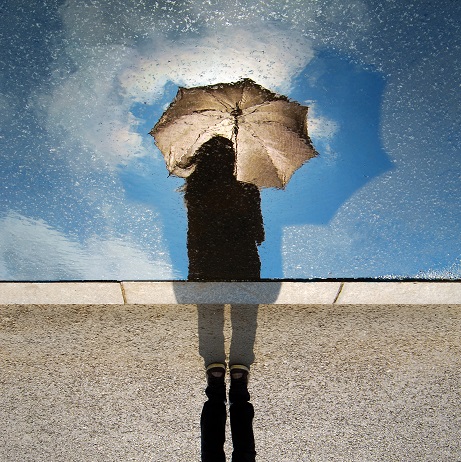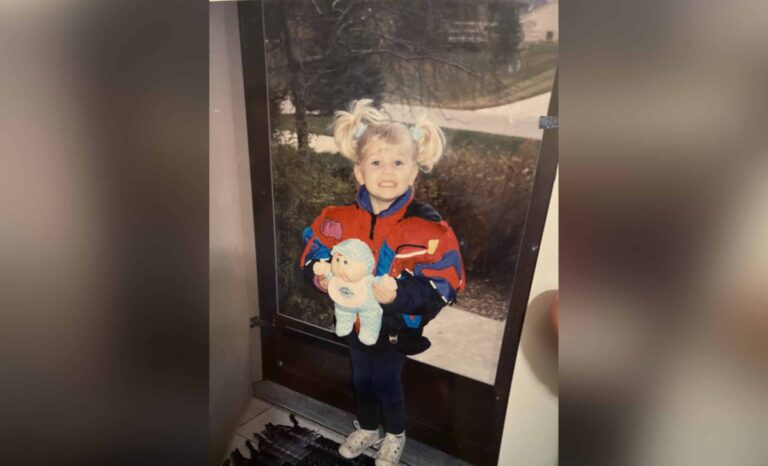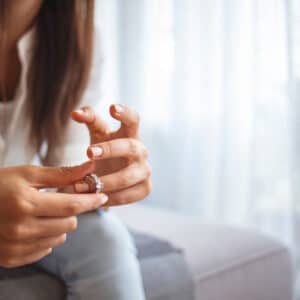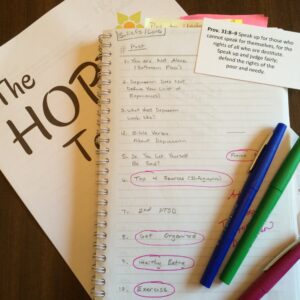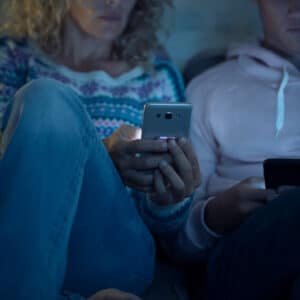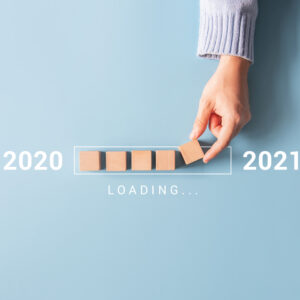Sensitive Content Warning: The following article features images and discussion about body appearance and eating disorders that may be upsetting to some readers.
I cannot stop crying.
I have watched Dove’s new video campaign, “Cost of Beauty: A Dove Film,” countless times. And I have cried through every single one.
The powerful, heartbreaking 3-minute film is part of a campaign highlighting the ways that social media can be harmful to children’s mental health. It chronicles the real experience of a smiling, joyful young girl who radiates confidence and beauty.
Her name is Mary.
Mary’s story broke me open and exposed the soft, vulnerable parts of myself I thought I had buried long ago.
Truthfully, I should have known it would gut me from the first moment I heard the lyrics of “You Are So Beautiful” by Self Esteem begin to play.
The film opens with Mary’s carefree childhood, which features her dressing up and making hilarious videos with friends, performing in school productions, and taking pictures with her supportive and loving mom, who can be heard whispering encouragement off-screen: “Good job, Mary!”
Around the time she celebrates her 12th birthday, Mary receives the gift of her first smartphone. We see snapshots of the beauty and fitness content she absorbs on social media and the influencers she starts to emulate, and it’s heartbreaking to watch as she becomes more self-conscious of her body. She creates a detailed workout plan in her journal and obsesses over her appearance, snapping selfies and taking pictures of her stomach in the mirror.
RELATED: I Was 15 When I Began Starving Myself
At one point, her mother attempts to take the phone away, but it’s clear Mary has already begun a downward spiral of obsession and self-loathing.
Her journal is full of headings like “Weight Watchers for Adolescents” and “Stop That Craving!” and entries that detail her current weight and goal weight and berate her lack of control—”Today I overate at lunch.”
In the background, we hear the voice of an influencer urging, “Get yourself a tape measure, thigh gaps are in!”
The final journal entry reads this:
“Look at yourself. Your gross ugly self.”
The next time we see Mary, she is painfully thin, bent over and defeated on a couch, then in the hospital, a medical wristband and IV in her pale arm indicating she has been admitted for eating disorder treatment. The music fades out and is replaced with the cold, methodic beep of a heart monitor.
The screen fades to white before the words appear: “The cost of toxic beauty content is greater than we think.”
Just when it seems like all hope is lost, we hear a woman’s voice, breaking with emotion, singing an a cappella version of “You Are So Beautiful.” The camera pans to an older, healthier Mary, sitting next to her mother. Her mother sings to her, telling her she is everything she hoped for and everything she needs. A tear runs down her cheek and Mary reaches up to wipe it away.
By this point in the film, every single time I watch it, I am sobbing.
The video ends with a beautiful montage of other young women of all shapes, sizes, and skin tones who are also in recovery from eating disorders. Many of them are sitting next to their mothers. But I can barely see the screen through my tears.
Because all I can see is myself.
I was Mary.
Mary’s story is my story.
Mary is so many of us.
RELATED: Daughter, When You Look in the Mirror, This is What I Hope You See
I saw Mary with her mom and was immediately transported back to the day I sat across from my own mother on a therapist’s couch and confessed I was in the throes of an eating disorder. I remember so vividly the raw pain on her face, which quickly turned from confusion and shock to fear, concern, and deep, deep sadness.
Sadness because no matter how much she loved me, and supported me, and sang to me over and over again how beautiful I was, she could not protect me from the crushing pressure and suffocating grasp of the media and the beauty industry.
She could not protect me from obsessively reading fitness and health magazines, counting every calorie I put in my mouth, punishing any failures with hours on the elliptical, and scribbling notes of self-loathing in my own journal.
She could not protect me from telling myself, “Nothing tastes as good as skinny feels” every time I wanted to cave and eat something “bad” for me, or running my hands over my protruding hip bones every night as I lay in bed and my stomach grumbled.
She could not protect me from stuffing myself with ice cream and donuts and cereal to fill an unrealized, unattainable, unmet need and then forcing myself to get rid of it all.
RELATED: A Letter To My Eating Disorder: This is Goodbye
Now here I am ten years later—recovered, and the mother to a little girl of my own. A little girl who is growing up in a world completely different from the one I knew.
And I’m scared. I’m so scared.
Because if I developed an eating disorder before smartphones even existed, what chance does she have to escape it?
I was Mary. I am Mary. Mary’s story is my story. And I am determined to do whatever I can to make sure it does not become my daughter’s.
At the end of the video, Dove encourages viewers to sign a petition to pass the Kids Online Safety Act, with the goal of making social media a safer place for children.
The very last screen features the company’s mission statement: “Let’s change beauty.”
Thank you, Dove. There is so much more that needs to be done to change the beauty industry and safeguard the mental health of our children.
But it starts with sharing these stories.
It starts with sharing our stories.
For Mary.
For us.
If you or someone you know is experiencing a mental health crisis, dial 988 for 24/7 support. For eating disorder support or help finding treatment, text HEALING to 741741 or go to findEDhelp.com.

If you liked this, you'll love our book, SO GOD MADE A MOTHER available now!
Order NowCheck out our new Keepsake Companion Journal that pairs with our So God Made a Mother book!
Order Now


